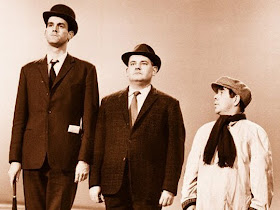The Class system is one of the worst things about Britain, or should that really be England? The notion is that someone who is posh and rich is better than someone who is common and not rich; and it often goes unchallenged. If you are royalty, you are seemingly at the top of a pyramid, the most superior, the most worthy, the most intelligent, and so on and so on. The Class system has made England a third-rate nation and a laughing stock of the world. If we challenge the idea of racism, then why not the prejudice, bigotry and nonsense of the Class system? Is it a cosy falsehood, cherished by some people because it makes them feel better, or more worthy, or more superior? And just why would anyone want to feel superior anyway? What’s all that about? I personally don’t feel the need to feel superior to anyone else in my everyday life, why would anybody want to?
There are deeper issues here too. I believe that when people, as individuals, or nations as groups of people, build societies on such skewed philosophies as racism, class, religious intolerance or whatever prejudice it might be, those nations are living basically a lie, and because of this hypocrisy and double-standards may flourish. And this in societies such as England which proclaim to be modern egalitarian democracies! And Americans might point fingers at the ‘quaintness’ and backwardness of the English Class system, and feel a sense of pride because they are more modern and egalitarian, but mention racism, and they will invariably go quiet. So the English are not the only ones practising hypocrisy and double-standards.
I’m trying to open your eyes to the possibility that much of English society could be built on foundations of partial-truths, half-truths and even downright falsehood. Any system is nice and cosy, if you’re placed at the top or even comfortably in the middle somewhere, but reality really hits home if you are at the bottom, or perceived to be at the bottom. And perception is what we are talking about; are we saying these distinctions are real and natural, or are they faulty perceptions that are created and imposed cynically to allow some people to prosper and get on, while denying the same chances to others, for whatever reason?
Is Christianity in England about nice and respectable middle class people being a bit religious and finding God because they are nice and respectable and middle class? From where I am standing, I think some of what passes for Christianity in England is exactly about this; nice people being even nicer because God recognises their niceness! You may honestly say, is this so bad after all? Maybe it isn’t quite frankly, but if that’s all Christianity boils down to, nice people being nice, then it’s a bit of an empty bag. What happens if you’re not particularly middle class, or you haven’t been particularly nice, or you just don’t in any way fit this kind of stereotype? Isn’t Christianity for you then?
Many people, who benefit because of the injustices of the Class system, might say that they are good Christians; but I have found in life that it’s often not what you say, it’s what you do that really counts. Many people might say they are Christians, but often their actions can be anything but Christian. And the problem this creates can be manifold; it makes people who are not particularly Christian think that Christians are hypocritical, it can create a false sense of respectability in people who are not really respectable at all, and it can reflect badly on God too! This type of hypocrisy, which it really is, can be part and parcel of organised Christianity, which can be more about pandering to a stereotyped version of Christianity than it is about really living as a Christian. It seems to be true that some of what passes for organised Christianity just isn’t reaching out to many Christians. Why should this be? And what is the answer to it?
I believe we need to look closely at just what we are supposed to believe, and try to get to the heart of faith, a real living faith for real living people! Maybe if we are honest, honest about our societies, honest about ourselves and our needs, and honest in our yearnings for a living faith, a faith that challenges us and causes us to rethink just what it is we think we know, we might find ourselves in a better position. We might just find then that we are living truthful lives, and not in any kind of cosy falsehood.



No comments:
Post a Comment